When my grandma expressed interest in finding a companion animal to keep her company in her rural cabin, I began thinking about different dogs to help her find the perfect furry friend.
Dogs make great companions throughout our lives, but as we age, sometimes the type of dog that fits best in our lifestyle can change, especially as we grow older. While dogs are great at providing company and unconditional love, some pooches (especially those with a ton of energy!) can be overwhelming for those with a less active lifestyle.
In this article we will look at different breeds to find the dog that best fits your lifestyle – specifically, the best dogs for seniors! No matter what your level of activity, there is a perfect pooch for you!
Factors to Consider When Getting a Pooch
If you’re a senior thinking about bringing a four-legged friend into your life, be sure to consider these factors when selecting a new buddy.
Energy Level: For seniors that are leading less active lifestyles, a dog with lower energy levels will be an ideal companion for you. Some pooches only require one or two short walks a day, which is a great way to keep you both healthy while still being manageable! Dogs with lower energy levels are also more apt to want to cuddle up with you while you’re reading a book or sitting by a fire! For most seniors, a calm dog breed will be the best lifestyle fit!
Size: Dogs that are smaller can be much easier to manage. With a little pooch, you won’t have to worry about them jumping up on you and knocking you over, or pulling too hard on the leash. They are also easier to transport, whether you are going for a short trip or taking them to the vet. And as an added bonus, they tend to have cheaper medical costs than larger dogs!
Adult vs Puppy: Puppies have much higher energy levels and require a lot of attention – not to mention, puppies need to be housetrained. For many seniors, adopting an older dog that is already trained is a good choice, as you can just focus on enjoying time with your pooch without worrying about your house being destroyed! You can also feel good about adopting an older dog that is less likely to find a good home since many people want to adopt puppies.
Community: For elderly people that live in communities, there may be residential guidelines for what types of pets you’re allowed to have! Some communities only allow pets under a certain size, while in other places certain controversial breeds are banned, such as pit bulls.
Health: Some dogs are more likely to have expensive health problems than others. For example, breeds such as Dachshunds are prone to back problems and miniature Schnauzers have higher chances than other breeds of developing diabetes (which may influence your food choices too).
Best Dogs For Seniors and the Elderly
We’ve compiled a list of the dogs we’d recommend as the best dogs for seniors, due to their easy maintenance and relatively low energy (for the most part). Of course this list isn’t exclusive – there are plenty of other breeds that would work great with elderly owners!
Shelter dogs and mixed breeds are also fine choices, so long as you assess their energy and care requirements and consider how those needs will fit in with your lifestyle.
1. Maltese
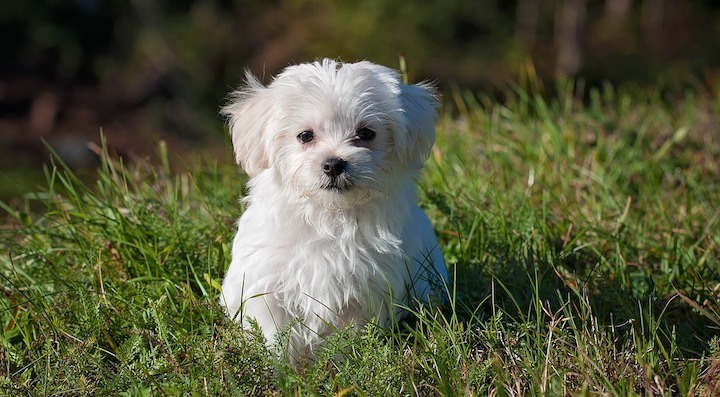
This hypoallergenic dog breed averages 4 to 7 pounds with a long life expectancy of 15 to 18 years. Very portable, the Maltese is bred to be a perfect lapdog and companion animal. Maltese’s tend to be incredibly affectionate and intelligent, making them very receptive to training. This is a great dog for someone who is looking for a loving, attentive snuggle buddy!
With this breed there are several health issues to consider, such as glaucoma, liver defects, and “shaker dog syndrome.” These can be partially avoided by carefully choosing a breeder when looking for your new pooch!
While Maltese’s require a certain amount of grooming, their hair makes them great for someone with allergies. And with all pets, it is important to keep your pup healthy by maintaining proper weight, diet, and exercise!
Other similar (hypoallergenic) breeds to consider include the Bichon Frise, the Shih Tzu, and the Havanese.
2. Pug
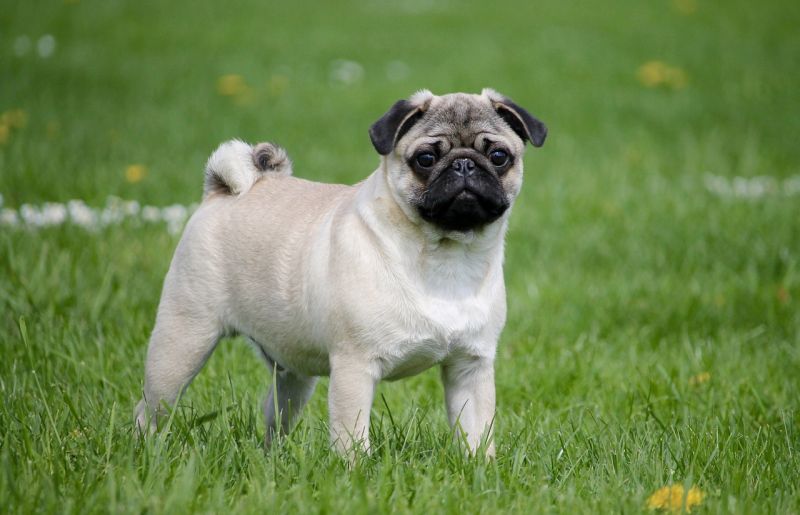
Pugs are a super gentle, affectionate breed whose playful, inquisitive natures make them an endearing and lovable companion. Pugs usually weigh between 14 and 18 pounds, and often live to be 13 to 15 years old. Moderately active, pugs love to go for walks, but are also happy to snuggle up to you on the couch! In fact, pugs really shouldn’t engage in strenuous activity due to their breathing issues (which result from their snubbed noses).
While pugs can suffer from eye problems and breathing issues, they are a generally healthy breed – though it is important to keep an eye on their weight as they are voracious eaters. As with other purebred dogs, it is wise to go through a reputable breeder – some even do genetic testing to reduce the chances of your pup developing certain diseases.
Pugs are short-haired and, while not hypoallergenic, they require minimal grooming, making them a low-maintenance and cost-effective option for a companion animal. Small, but sturdy, pugs pack a lot of personality in their little bodies!
3. Beagle

Beagles are known for being sweet, gentle, independent, and energetic (not to mention it’s the breed of Snoopy). While intelligent, beagles can be stubborn and curious, which may require creativity and extensive training! With an average weight of 24 pounds and an average life expectancy of 14 years, these hound dogs make great furry companions. Naturally a pack dog, beagles are social and usually do well being around other dogs!
This breed has moderate to high energy, and does well with multiple walks per day or being able to run around in a backyard. Beagles also thrive on lots of attention and stimulation. This would be a good breed for someone looking for a fun hiking companion!
Beagles enjoy good health and, while they are not hypoallergenic, they have short coats that are easy to care for. It is important to keep an eye on your beagles’ diet however, as they tend to love their food! While small, beagles are quite sturdy and enjoy a wide variety of activities.
4. Chihuahua

Chihuahua’s average 3 to 6 pounds and can live a long life of around 18 years. A lively, loyal, quirky breed, chihuahua’s can have a wide variety of personality traits. Very small and easy to carry or transport (they can easily fit in a carrier purse), this breed can be a cuddly, affectionate snuggler perfect for someone who isn’t looking for a dog that needs a lot of exercise or long walks.
Chihuahua’s are generally a healthy breed, but, as with all purebred dogs, it is important to find a reputable breeder. With their short coats, grooming is fairly simple and easy. However, they are not hypoallergenic!
Because Chihuahuas are so small, they have very tiny bladders. With this breed it can be a good idea to try a litter box or have doggie pee pads somewhere in the house for them to be able to relieve themselves in an acceptable place.
This breed is very small and fragile, and can be prone to barking due to their often nervous nature.
5. Boston Terrier
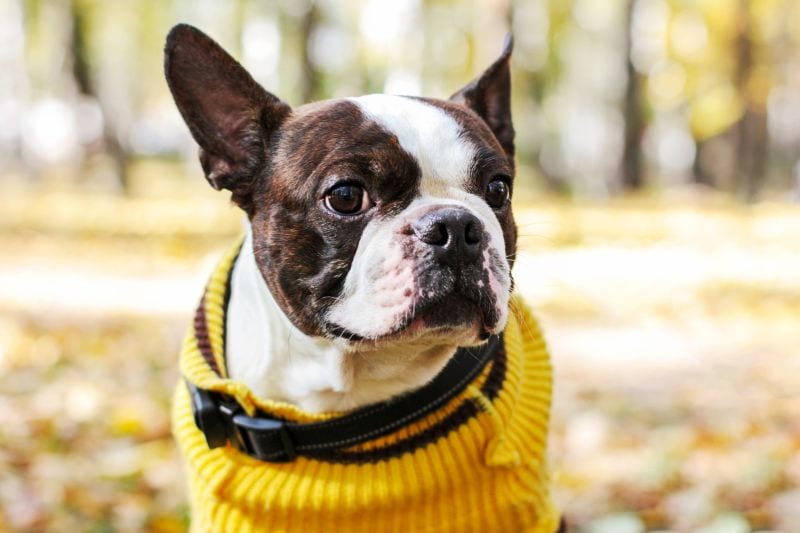
Boston Terriers are 10 to 25 pound dogs with a life expectancy of around 12 years. A smart, playful breed, your Boston Terrier is sure to have a colorful personality! A very affectionate and friendly, Boston Terriers make excellent companions that are happy to be with you whether you enjoy lots of walks or are more apt to enjoy a leisurely day in your living room.
Because Boston Terriers are brachycephalic (short headed), they can be prone to health issues such as breathing difficulties. And be warned, they may also snore! Other than respiratory issues, Boston Terriers are sturdy dogs that can lead long, healthy lives with the right care!
Proper brushing is always good to maintain with any pooch, but Boston Terriers have short coats that are relatively low-maintenance and won’t shed a ton; however, they are not a hypoallergenic breed.
If this type of dog interests you, a similar breed you may want to look into is the French Bulldog.
6. Otterhound
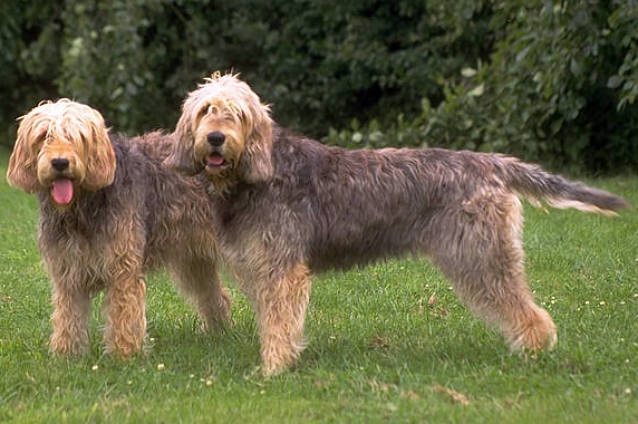
If you are looking for a larger, more active breed, the Otterhound could be the right pooch for you. With a maximum weight of about 50 pounds, these friendly, independent dogs have a relatively long life expectancy of approximately 12 years.
Affectionate and alert, this moderately active breed loves all types of activities – especially swimming! The Otterhound has a water-repellent double-coat and webbed toes, making it well-suited for water activities.
While not hypoallergenic, Otterhounds shed minimally and only require moderate maintenance and brushing. They are a relatively healthy breed, although with all purebred dogs it is important to do your research before adopting them from a breeder or rescue!
7. Cavalier King Charles Spaniel

Cavalier King Charles Spaniels are an elegant breed with a long, silky coat. This affectionate pooch weighs between 13 and 18 pounds and has a life expectancy of 9 to 14 years.
Playful, adaptable, and sociable, the Cavalier King Charles Spaniel can make a great companion whether in a rural setting or in your apartment in the city. Though this breed has good watchdog ability and is sure to alert you to any intruders, this small dog is very gentle and friendly.
This breed is not hypoallergenic and requires moderate grooming and brushing, as its long, silky fur can be easily matted. With this breed it is important to find a good breeder as they are prone to many health issues such as heart conditions, neurological conditions, and eye/skin conditions.
Cavalier King Charles Spaniels are fairly active and do best with moderate exercise. Long walks and trips to the dog park are much appreciated! This dog could be perfect for you if you enjoy a somewhat active lifestyle or have a big backyard.
8. Poodle (Standard, Miniature, or Toy)

Poodles are energetic, intelligent, and loyal dogs. Whether you prefer larger or smaller dogs, poodles come in a variety of sizes! Toy Poodles range in size from 6 to 9 pounds, Miniature Poodles are 15 to 17 pounds, and Standard Poodles can be 45 to 70 pounds. Toy and Miniature Poodles have lifespans of up to 15 years, while Standard Poodles have average lifespans of 12 years.
Poodles can be a nervous breed, and need a good amount of socialization and interaction. An active breed, they do best with a variety of activities, from walking to swimming!
If you suffer from pet-related allergies, a poodle could be the perfect friend for you! With their hypoallergenic fur, they require professional grooming but you’ll never need to vacuum up their fur! Poodles are generally a healthy breed, so you won’t need to worry about incurring too many medical costs.
9. Cocker Spaniel
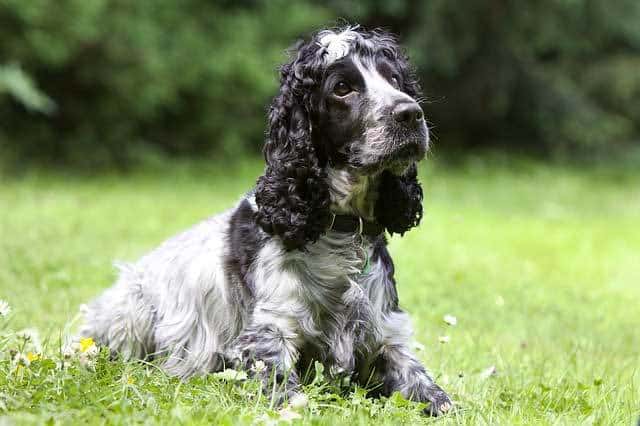
If you remember fondly watching Lady and the Tramp as a kid (or with the grandkids), the loyal and elegant Cocker Spaniel may be the companion for you!
These pooches are a medium-sized breed, usually weighing between 20 and 30 pounds and standing between 13.5 and 15.5 inches tall. They are a great pet for people who like company – a cocker spaniel will be reluctant to leave your side!
Cocker spaniels get along with everyone, whether it be children or another pet. Although they might need a little extra encouragement to get used to going outside to do their business, these pups are exceptionally easy to train (I once met one who learned to “sing” Happy Birthday!). They love to be around people and can get lonely if left home alone for too long.
While these dogs are happy to sit and cuddle, they also need some exercise. You will want to take your Spaniel pup on 2 short, 30-minute walks a day. If you need a little extra push to keep up your daily exercise, a cocker spaniel’s cheerful energy can be a great motivator.
Cocker Spaniels are not the best breed out there for people with allergies; despite having hair (as opposed to fur), they are not hypoallergenic. Their hair can be a blessing or a curse, depending on your preferences. They don’t shed that much, so you won’t need to worry about vacuuming up after them, but their coat does need maintenance, with thorough brushing and regular trips to the groomers. For a low-maintenance doo, ask for the “puppy cut.”
Spaniels do not usually have many medical problems during their 12-15 year lifespan, but that, of course, will vary between breeders. Some common problems include food allergies and, as they advance in years, hip dysplasia, kidney failure, and cataracts.
10. Pembroke Welsh Corgi
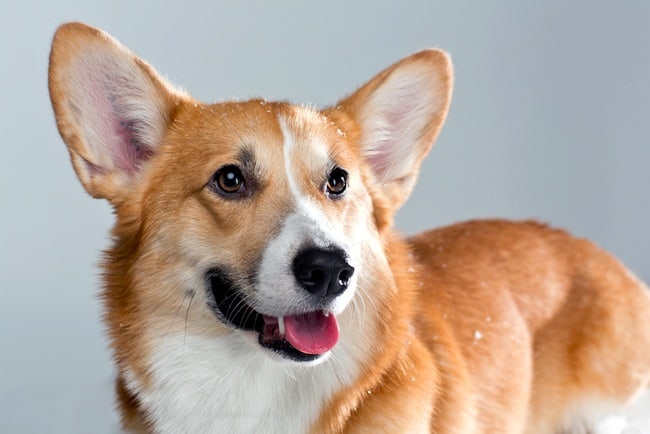
The Pembroke Welsh Corgi is a great choice for seniors seeking a four-footed companion – just ask the Queen of England! From her youth to today, these pups have been a favorite of Elizabeth II, and it is easy to see why.
With their loving yet independent disposition, these dogs are great company whether you live in an apartment or have a little extra space for your pup to zip about.
Corgis are a medium-sized dog, standing 10-12 inches tall and weighing no more than 30 pounds (although you might need to monitor his food to keep him at a healthy weight!). Their double-coat is weather-resistant, but keep in mind – this also means they are signficant shedders. Regular brushing should help keep your home from getting a layer of Corgi fur.
Corgis are very intelligent and love to be around people. In fact, they are friendly with strangers and will get lonely if away from their owner for too long. They are great with kids and other pets, although you should monitor these interactions at first – Corgis sometimes nip at ankles during play due to their herding instinct. They are moderately easy to train, although some have been known to be a bit willful.
These short-legged pooches have a surprising amount of energy that should be manageable for an active senior. They require about 30-45 minutes of exercise a day. If you have a little yard for them to run around that is a bonus, but Corgis also adapt to apartment life very easily.
Corgis live 11-13 years and are relatively healthy, although you will want to make sure that your pooch doesn’t over-eat and that he isn’t jumping up or down from furniture. Taking care of your Corgi’s small, long frame in youth means he will be less likely to suffer from common ailments like hip dysplasia and invertebral disc disease as he ages.
11. Scottish Terrier
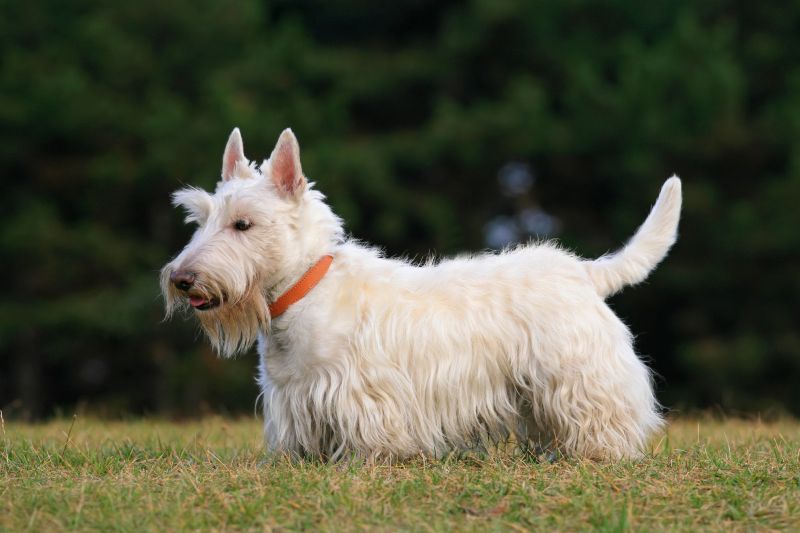
The Scottish Terrier, often affectionately called the “Scottie,” has been a favorite in the White House for decades – Franklin D. Roosevelt, Dwight D. Eisenhower, Jacqueline Kennedy Onassis, and George W. Bush were all lovers of this independent and brave dog.
Scotties are not only a great companion for presidents, but also seniors, because of their adaptable temperament, small size, and hypoallergenic coat.
Scotties are a small breed, standing no more than 10 inches at the shoulder and weighing in between 18 and 22 pounds. As mentioned, they have hypoallergenic hair, which is great for seniors with allergies. While they don’t shed very much (a big plus), their double-coat does need weekly grooming.
They are intelligent, but can still be a little difficult to train. Luckily, they are easily bribed with treats (something many grandparents know something about)!
These small pooches are not too fond of running, but they are still quite energetic. They are perfect for seniors who like to go out for a daily amble without worrying about their pup pulling ahead uncontrollably.
Scotties are great apartment dogs and are great with children. But they also benefit from having a yard given their predilection for digging that comes from a long history of hunting burrowing animals like badgers. Give him a dedicated spot to dig so that he can entertain himself for hours without driving you nuts by digging holes up a beloved rose garden.
Scottish terriers can live 11-13 years, with relatively few health problems. Von Willebrand’s disease (a potentially fatal, hereditary blood disorder) affects this breed more than others, but recently some progress has been made in identifying it through DNA testing. Scotties also uniquely suffer from Scotty Cramp, a muscular condition which affects these pooches after a period of exercise or excitement. If your pup has severe symptoms, talk with your vet, but in most cases it is nothing to worry.
One last thing: Scotties don’t swim very well, so be sure to keep pool and boat safety in mind if you spend a lot of time hanging out around the water.
12. Italian Greyhound
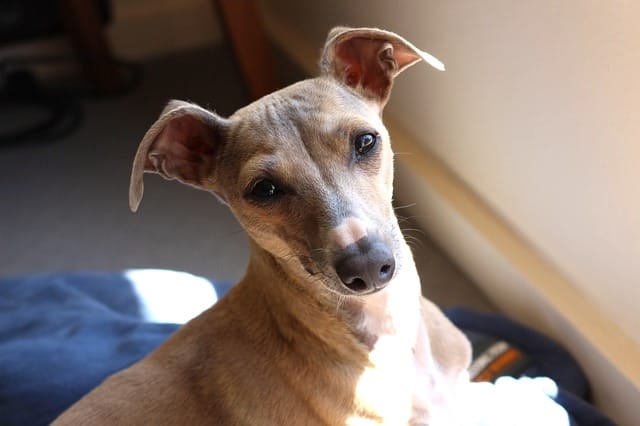
The grandkids might know the Italian Greyhound from his recent YouTube popularity, but what they don’t know is that this pooch is actually a great companion for seniors!
“Iggies” (as they have been nicknamed) stand up to 15 inches tall and typically weigh in under 11 pounds. If you’re seeking a sensitive and playful lap dog, the Italian Greyhound could be the right addition to your home.
The Italian Greyhound’s small size makes him a manageable breed for many seniors. In addition, they are hypoallergenic with a low-maintenance coat. Not only do these pups barely shed, they also have virtually no grooming needs.
They can get cold easily and may require a sweater or winter coat in chillier months; however, if you miss the stage where you could doll up your grandkids in cute clothes, you might enjoy this aspect of owning an Iggy.
These pooches thrive around people. They love to snuggle and their goofy antics are bound to put a smile on your face. Especially in their youth, Iggies have a lot of energy and will probably require 1-2 walks a day of at least an hour. However, if you adopt an older Italian Greyhound, he will likely adapt to your lifestyle quite easily.
Iggies are a smart breed which train easily with positive reinforcement (that is, treats). One thing they sometimes have difficulty with is housetraining. They are still well-suited to apartment life, but you may need to put some pee pads around to minimize accidents.
Italian Greyhounds are healthy dogs overall that typically live 14 to 15 years. Still, there are some habits that you need to watch out for to avoid trips to the vet.
These pups love to chase things with abandon, which isn’t always a good match for their fragile frames, so be sure to keep them on a leash when out for walks to avoid broken bones.
They can also be susceptible to skin cancer. As such, you will want to make sure he dozes in shaded areas and not directly in the sun. As your pup ages, he may suffer from common illnesses for small dogs such as patellar luxation. Risk of other common issues, such as hip dysplasia, should be reduced by going through a reputable breeder.
Older Owner Tips
Dog companionship is great for any age, but there are a few consideration older owners should keep in mind:
- Dog Manners & Training. Due to less balance and a higher fall risk, senior owners need to devote more time to training. A dog that jumps up when you come in the door with your hands full of groceries, or a dog that yanks you across the street isn’t just an annoyance – it can be a serious danger. Make sure to find a reputable dog trainer in your area to ensure your furry friend is polite and well-behaved.
- Consider Arthritic-Friendly Leashes. Traditional leashes can be quite uncomfortable for owners with arthritis, so try to opt for special dog leashes for arthritic hands that feature additional padding and a more comfortable grip.
- Walks & Physical Activity. Dogs need a fair amount of physical activity each day, so make sure you’re up for the task. There are low energy dog breeds who don’t require as much physical exertion, but even these dogs need at least a short walk each day and potty breaks. If you can’t exercise your dog yourself, there are dog walking services that can help, but be sure to take into account the additional cost.
- Thinking Ahead. Older owners should also make sure to consider what will happen to the dog if they end up needing to move into a care facility that does not allow pets. Is there a friend or child who would be willing to take the dog if something unexpected happens? Are there care facilities nearby that do allow pets? Take all this into consideration if you’re thinking about adopting a new friend.
Best Dogs for Elderly: Which Is Your Favorite?
Personally, I am a big proponent of having a furry companion around – dogs can do so much to boost our emotional well-being, and I love having the reciprocal relationship of taking care of one another!
We hope this list of the best dogs for seniors has given you plenty of ideas for finding four-legged companions that are well-suited to older individuals.
Did you enjoy this list? Any breeds you think we missed? Please share any thoughts or stories in the comments section below!
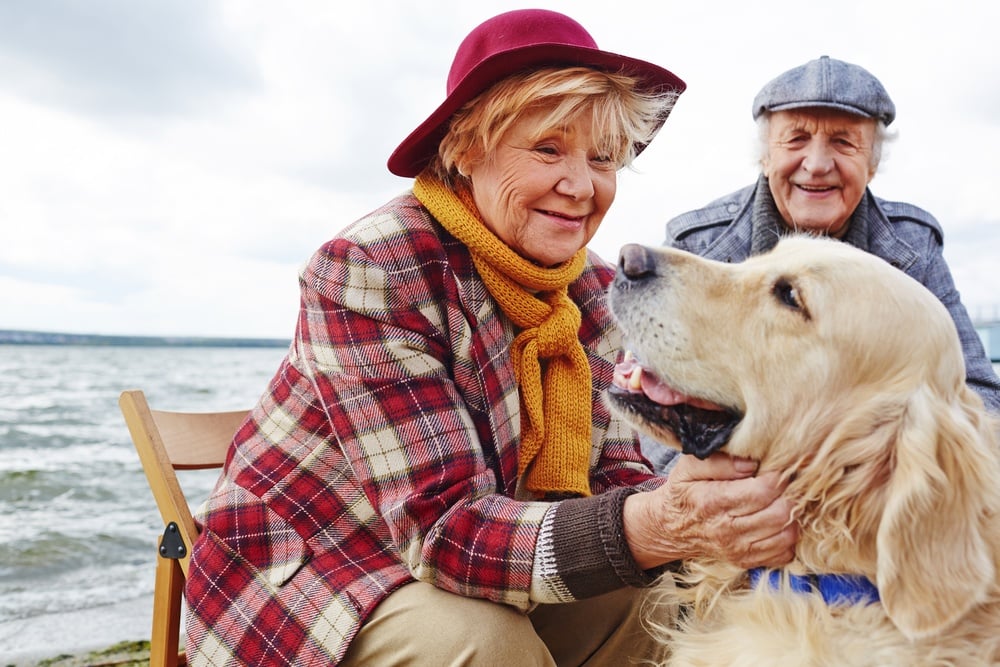



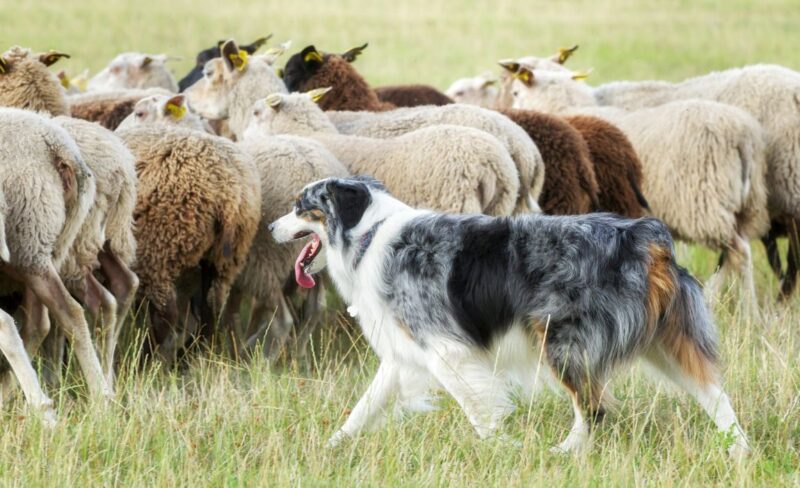
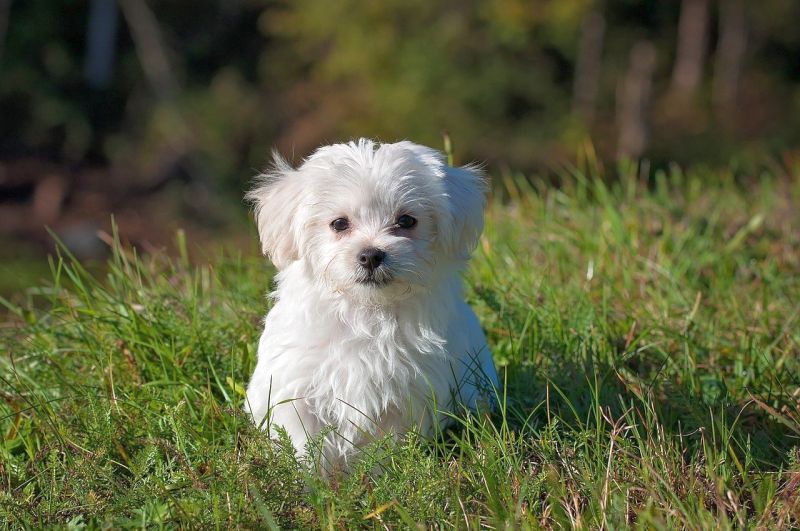
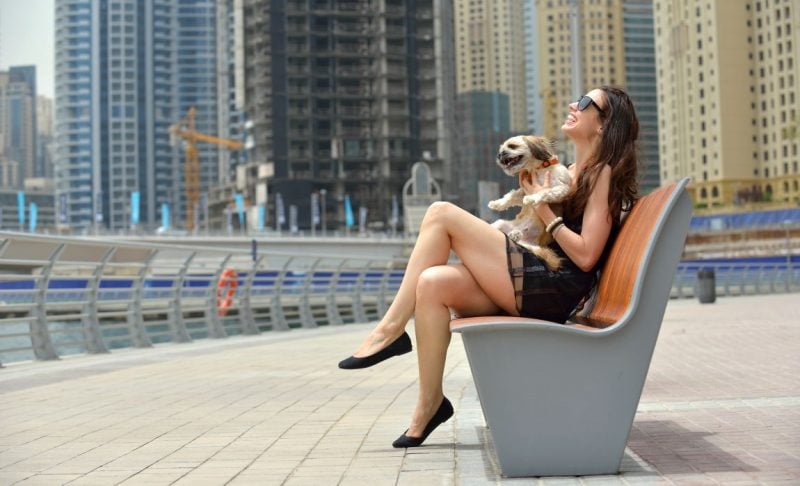

Leave a Comment